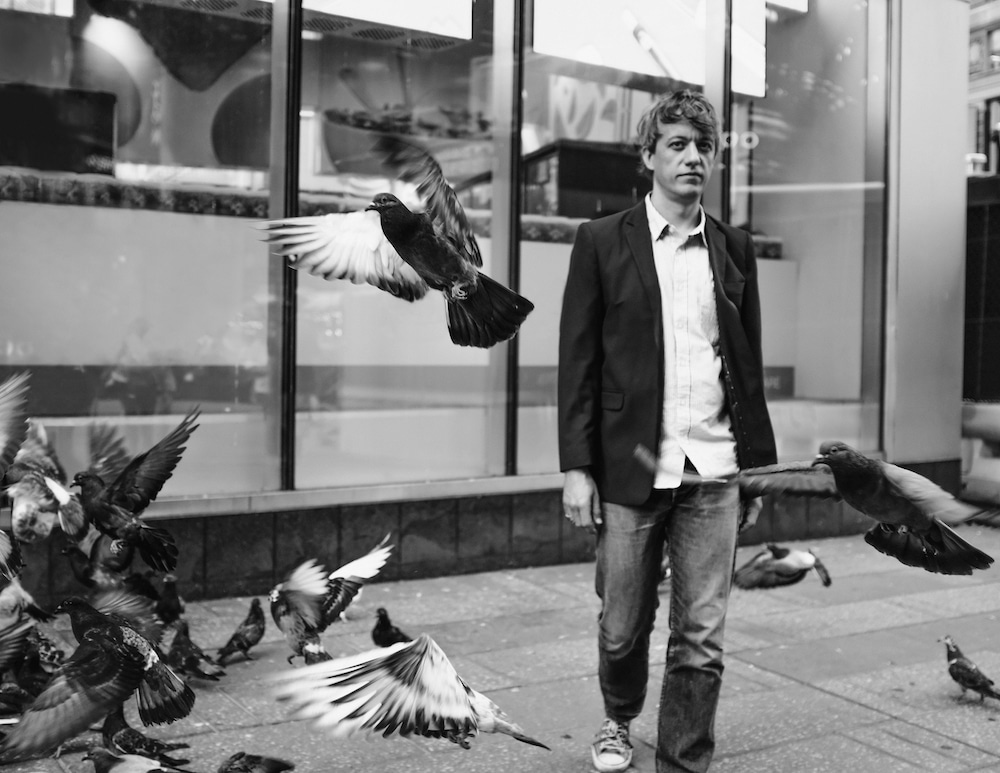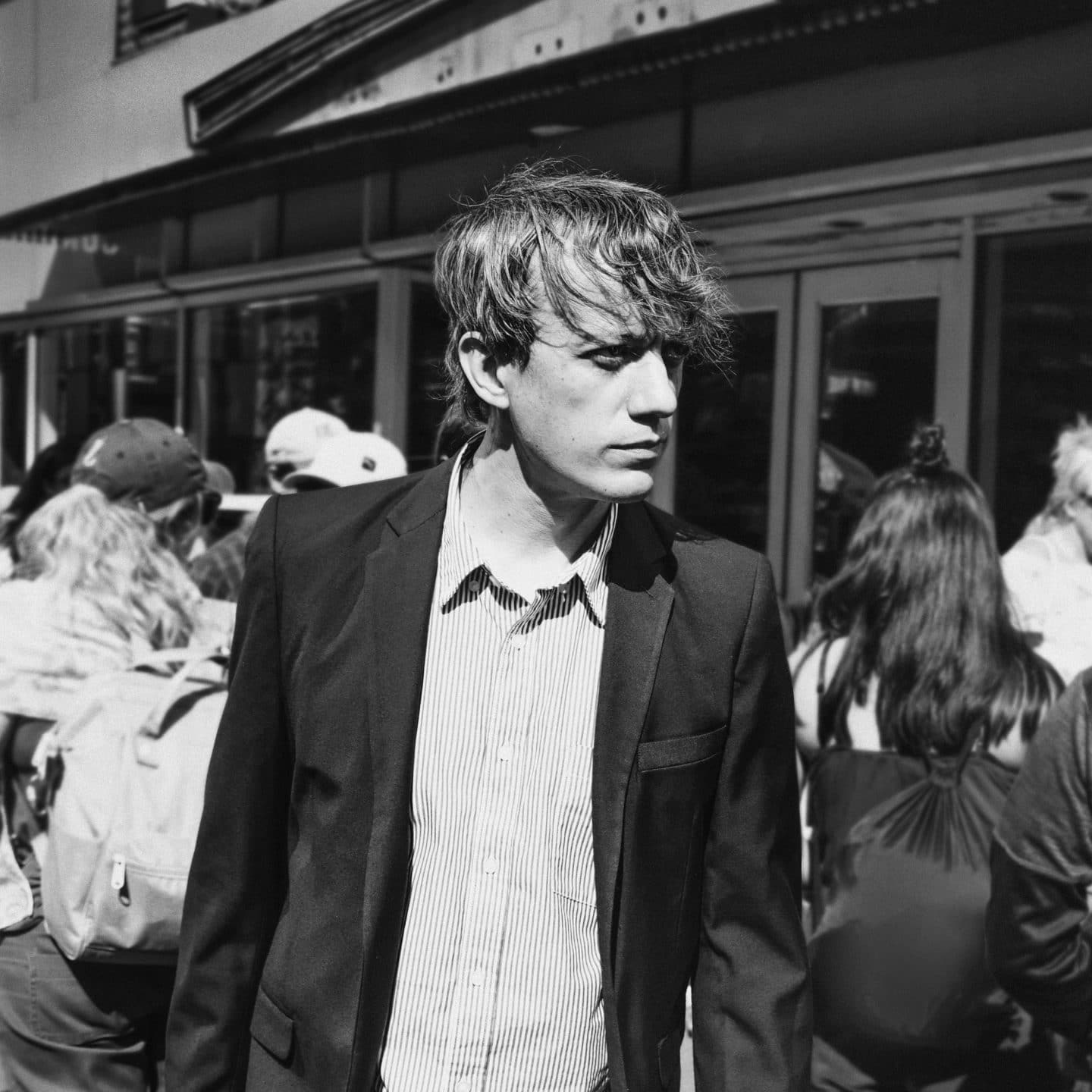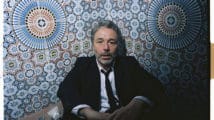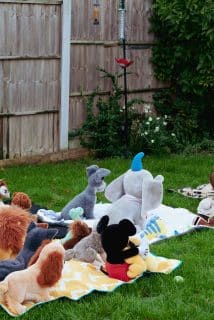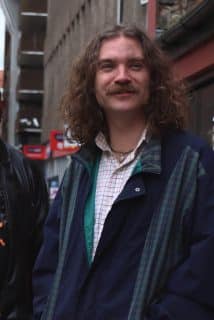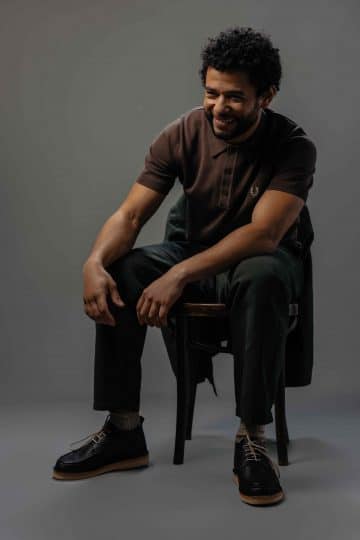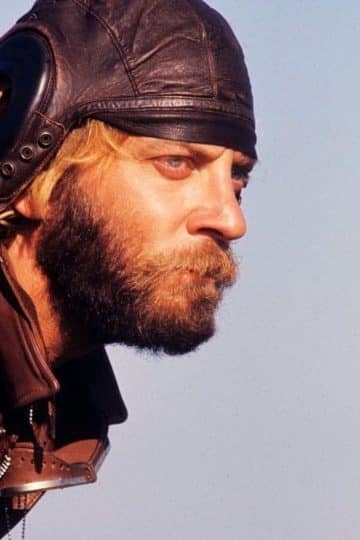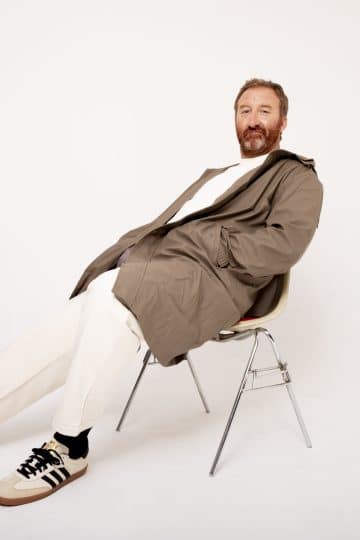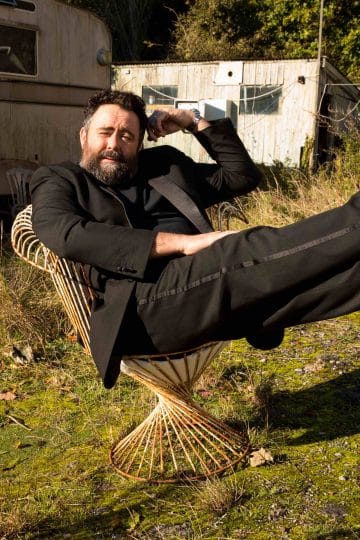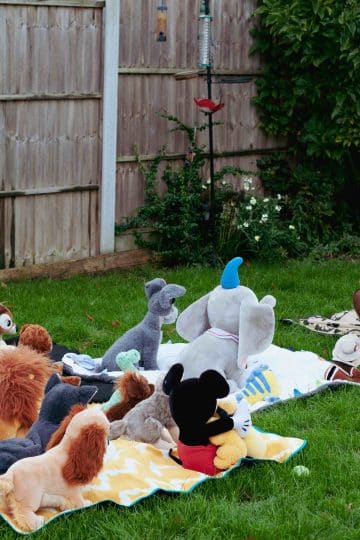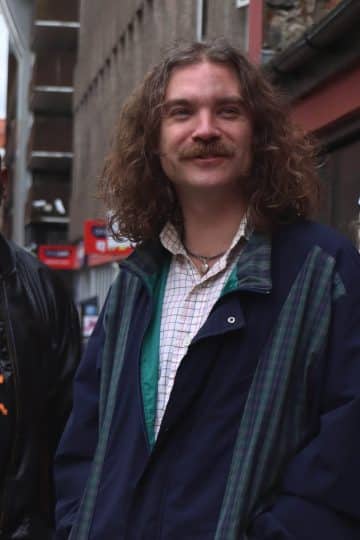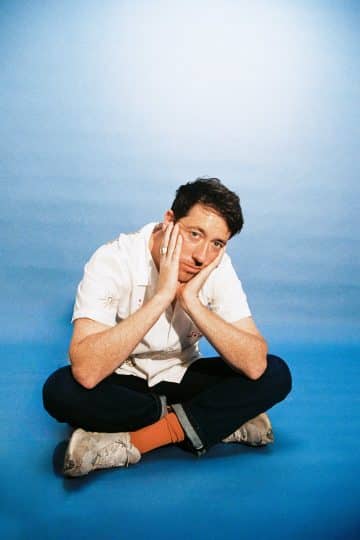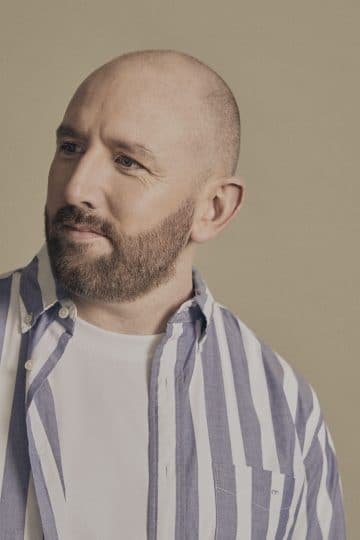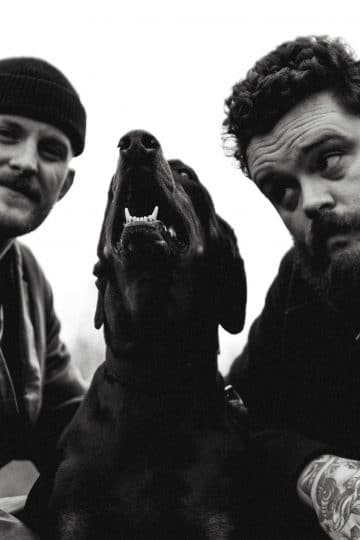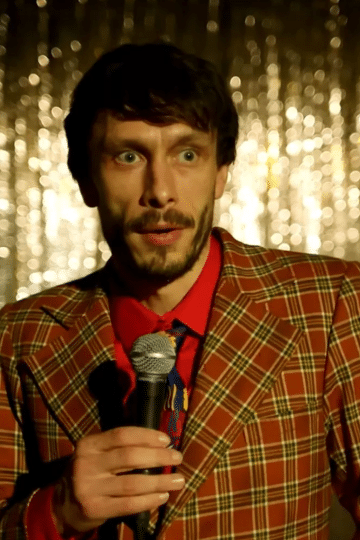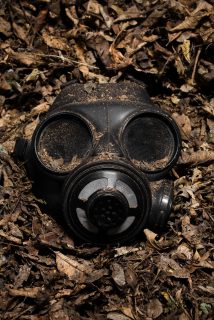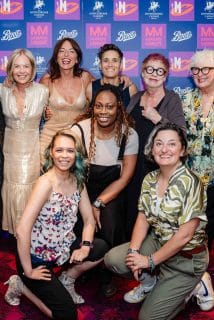The Cult Songwriter For The Unseen People
Culture
Steve Gunn is the underground American musician about to release a phenomenal new album about his lost dad, paranoia and the folk unnoticed on the margins.
Steve Gunn is one of the cult heroes of the American music scene. A former guitarist in Kurt Vile’s band he has had a prolific career over the last eleven years, working with various collaborators, and on his own albums, to bring stories of people on the fringes to life. Now, he’s releasing a new album, called ‘The Unseen in Between’ which may well be his most accessible, possibly his best and hopefully will be the big crossover hit it deserves to be: truly, this is an album of depth and beauty which deserves to be heard. Recorded with regular contributors like James Elkington, he’s also brought Bob Dylan’s musical director Tony Garnier into the fray, as he seeks to address various issues in his highly attuned songwriting, most notably the death of his father.
Here, Steve talks us through ‘The Unseen in Between’ track by track.
Firstly, how was the recording of the album?
With a lot of albums I’d be writing on the road and then piecing them together. For this one I wanted to take my time and actually be in one place and really write something. I gave myself a few months to do that, for the first time.
Another thing I wanted was to find the right studio, and I found this amazing place in Brooklyn which seemed to match the aesthetic I was trying to get. And I quickly hit it off with the engineer, who had a lot of great gear and pragmatic approach to recording.
It all came together, like finding Tony Garnier who plays with Dylan and using a friend James Elkington, and a jazz drummer from New York, it was almost as if it was a real recording session.
Is it stressful wondering if everyone will gel?
Yeah, I wasn’t sure how it would come together. I hadn’t met Tony before, but he came in was such a sweet guy and open minded and supportive and we all hit it off. It coalesced in this natural way, so I never felt stressed. Me and the engineer are huge Dylan freaks we were like schoolboys listening to stories in between takes. It was nuts, he was pulling me aside saying, “I really dig your songs, just remember to be yourself, just sing the song and don’t worry about anything else, we’re here to support you…” All this supercool supportive studio talk.
Let’s talk about the first track, ‘New Moon’…
I knew it was going to be the introduction, even as I was coming up with the songs. The song almost encapsulates the whole album, the feel of it and the sentiment. It starts out super simply, just me and my voice. We had that Johnny Marr rip-off vibrato part and Tony wanted to play upright bass on it – it sets the tone I think.
Next is ‘Vagabond’…
I was approaching that song with more of a pop perspective, which was something different than I was used to. That sort of up tempo pop song was relatively new to me. I was really inspired by the Agnes Varda film, ‘Vagabond’, and I jotted down a bunch of notes while I was watching the film. It formed pretty quickly – some of the other song I was pulling my hair out.
‘Chance’…
Chance represents a certain type of person to me, living in their beat up car with a bunch of objects in it, in a parking lot somewhere. Chance is someone who has a strange past and he wants to move on and has a lot of baggage…It’s almost like a film character.
I was keeping some people in mind who I was feeling concerned about. I realised it was a dark tune and I ended up writing this chord sequence change to it, this sweeping hopeful part, and James Elkington was helpful with adding strings to it, to give it that sweetness.
That vision of battered humanity feels much needed in puritanical social media world.
That’s definitely part of my interest, that where the title ‘The Unseen in Between’ comes from. I feel like there’s so much toxicity with the immediate nature of things like social media. There’s so many peripheral things happening below the surface, but those perspectives are slowly diminishing. When you’re looking at anything you have to look a little father into it and for me that’s what keeps thoughts going and creativity and positivity – just exchanging information and learning, that’s the beauty of life. And I try to reflect that in music.
‘Stonehurst Cowboy’ is about your dad…what did you want to achieve with it?
I knew I was going to get to this and I knew the title because it was one of his many nicknames, and I wanted to write a tribute to him and his life, and my relationship to him as well.
I think I identify with him so deeply and was so caught up in his story and the fact he transcended all these painful years back when he was becoming an adult. He and all his friends are dealing with so much baggage and strange psychological damage that trickled down onto all the other members of the family.
My dad was a true character and I was thinking about him and the house he grew up in. Stonehurst is the neighbourhood in Philadelphia where he grew up and I just was envisioning his old street and trying to see it through his eyes. Maybe trying to sum up his story a bit and maybe discuss some things that were never really discussed. People who experience painful events, like being in a fucking war, never have any catharsis, it’s never talked about it and it becomes this unspoken territory.
For me, when my father was ill, everything became ok, and came into focus and I just got that much closer to him. In the song I was trying to walk through his old street through his eyes and then the second half of the song is me reflecting on him. How I found peace with the whole situation, with his death, and with him. I wanted to pay tribute to that, I thought it was a very beautiful relationship.
It’s difficult for men to open up –
You know how it is father and son, there’s a lot of issues off the bat. I think when I was younger I rejected a lot of things – there’s a selfishness where you’re trying to get your own footing, and figure out your own mind. I felt very autonomous. But when I got a bit older I circled back: ‘wait a minute, I’m turning into my father here, I’m reminding myself of him. And I think I need to reconnect with him.’
The traits you used to hate, you now have…
Yeah totally. I’m sticking on Steely Dan in the garage, that kind of stuff. It’s funny now he’s passed, I’m constantly reminding myself of him. The things I say or even just the way I move around, it’s really interesting.
How is it playing the track?
It’s ok for me now, but it was quite emotional when I was recording it, because it was new and I could really feel it. I think that comes through in the recording. Having Tony Garnier playing upright alongside me live, in this little room, was so intense, but quite nice.
‘Luciano’ is next…
That was a song I came up with about a lighter topic which was a relationship with a night shop owner who rescues a cat, and a lot of the song is from the cat’s perspective. It’s about a nurturing relationship, this guy saves this cat and the cat is very grateful, but also he’s concerned for the person who saved him. There’s this mutual concern for each person involved, and I think I was trying to convey those kind of relationships.
I live in New York City and – we’ve been talking about social media and everyone looking perfect – for me, it’s like I always think and wonder about and absorb the people in the city that aren’t necessarily noticed.
In big cities like London or Madrid where people have their directions in their phone and they’re not looking around and are not wondering about other people or having empathy or a sense of peripheral awareness. I try to think about what about this guy who works in the deli I’ve been going to ten years. We have a nice relationship, but he emigrated here from another country and left his family behind, imagine what kind of stories this person could tell you. For me I have a real interest in the lost stories in that sense.
‘New Familiar’…
That was a song that was basically tapping into my sense of paranoia with what’s going on politically in the world, and this shift. I think there’s a certain sense of isolation you feel when the world’s turning against you. I’d never felt such a heightened sense of that when I was so perplexed in the US with the past election. It was unfathomable to me. I was almost paranoid, like are we being invaded here? I’d be out in public thinking, “who’s side is who on?”
Do you think there’s going to be a positive response to all this?
I do hope there’s going to be a reaction. I do hope in the better good of humanity and society. I definitely feel hopeful, and that’s another part of the song as well – myself and so many others are feeling so isolated, but then you realise there’s a collective consciousness about trying to fucking change things.
Photo: Clay Benksin
‘Lightning Field’…
I’m interested in a lot of different artists. I used to work in the arts and just take a lot of inspiration from artists’ work ethics, and perspectives and theories. One artist that I really admire is Walter De Maria. I read this short essay about this installation he created called ‘Lightning Field’ which is out in New Mexico and is this installation on these metal rods. 400 metal rods actually, placed exactly apart – it looks like aliens came and started a scientific experiment. It’s very theoretical, very site specific and esoteric. People pay a good bit of money to get a guide and they drive out to the high desert and stay in this small house [to watch the lightning connect with it]. It’s a bit of a social experiment happening where Walter De Maria’s interested in the experience of going to see this work – the fact is 8 times out of 10 you’re not going to see any lightning, so it changes into this different experience where you’re suddenly in this house with these strangers who have also paid good money to see this installation, and where you have to share this space and react to this work and try to figure it out on your own.
To me I find that super interesting and I like that theory about a lot of things. You may step out your door to go see something but it may actually end up with the meaning changing and you have to be open to that. That took me a long time to open up in that way. You have to learn to let yourself go, and to figure things out on your own. It’s ok to make your own decisions.
I might be wrong but it’s part of his work that I really like and I wanted to write a song that’s a bit of a journey.
‘Morning is Mended’…
That was one of the only songs that came really, really fast. And it is also tied into my father. I had this experience: my father passed away and I stayed up all night, I didn’t sleep. I remember going outside and I went for a walk. I walked across this parking lot in Philadelphia and the sun was coming up and the sky was pink and blue, and it was overwhelming. I had this sense of peace about the situation with my father. It had been so painful and the fact it was over and he wasn’t suffering anymore and I was going to try and move on…all that stuff.
I really just had this one moment in mind and I was trying to come up with a song around that. I kept thinking of that morning and the way it was the first time I felt everything was going to be ok. I came up with the title ‘Morning is Mended’, and I was just walking myself through that feeling.
Then I just woke up one morning and just wrote it then and there. I’ve never done that before. I just caught it on the spot. So it’s one I’m proud of it really came from a different place.
The last track is ‘Paranoid’…
Towards the end of the session I was hanging out with James Elkington and we were talking about how fast ‘Morning is Mended’ came out and I was like, “you know, let’s write a song right now.” And he was like, “have you ever heard the story about ‘Paranoid’ the Black Sabbath song?” They’d recorded this album but realised they needed one more song but didn’t have any more material. Tony Iommi was like. “I have this one riff, so let’s go in there and do something.” From what I can gather it seems like Ozzy totally spit that out off the top of his head.. And it’s such a great fucking song. We were laughing about that, but I’d wanted to write a song about paranoia, I already had one, and I was still trying to work it out, so I had a few words written. We were like, “let’s call this one Paranoid, and keep it super super simple. I was playing three major chords, which was totally out of my comfort zone, but quite funny.
It’s a bit like a Lennon ballad. I’m a huge Lennon fan but I don’t’ necessarily show it all the time, so that was my time to try that, a more ballad-y song. It was a fun track to make.
What book are you reading at the moment?
I’m reading a book by this filmmaker Jonas Mekas called ‘I Had Nowhere to Go’, a diary of his early life. He was born in Lithuania but was displaced in world war two and became a prisoner of war. He managed to escape and moved around, managing to educate himself in Germany whilst starving. He ended up coming to the States, and what’s crazy is he lives in Brooklyn and I see him walking around. He’s 93, his life story is so incredible.
I was talking to my friend Lee Ranaldo from Sonic Youth who said he was friends with Jonas, and he’s so sweet, next time you see him go up and say hello. But I said no, I was getting a silent thrill when seeing him out. He runs this organisation called the anthology film archive which has been in the East Village for 60 years and is this incredible archive.
What non-musical talents do you have?
I have been cutting my own hair since I was 16. Occasionally I’ll cut other people’s hair. I think if this music thing doesn’t work out I might open up a hairdresser spot somewhere.
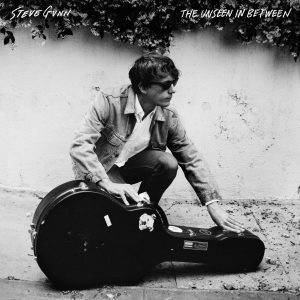
‘The Unseen In Between’ by Steve Gunn
The new solo album by American artist Steve Gunn is a journey through grief and paranoia into hope.
www.amazon.co.uk‘The Unseen In Between’ is out on 18th January.

Join The Book of Man
Sign up to our daily newsletters for the most progressive men's magazine on the planet.
Trending
Masculinity 5 days ago
Sport 1 week ago
Health 1 week ago

Join The Book of Man
Sign up to our daily newsletters to join the frontline of the revolution in masculinity.



